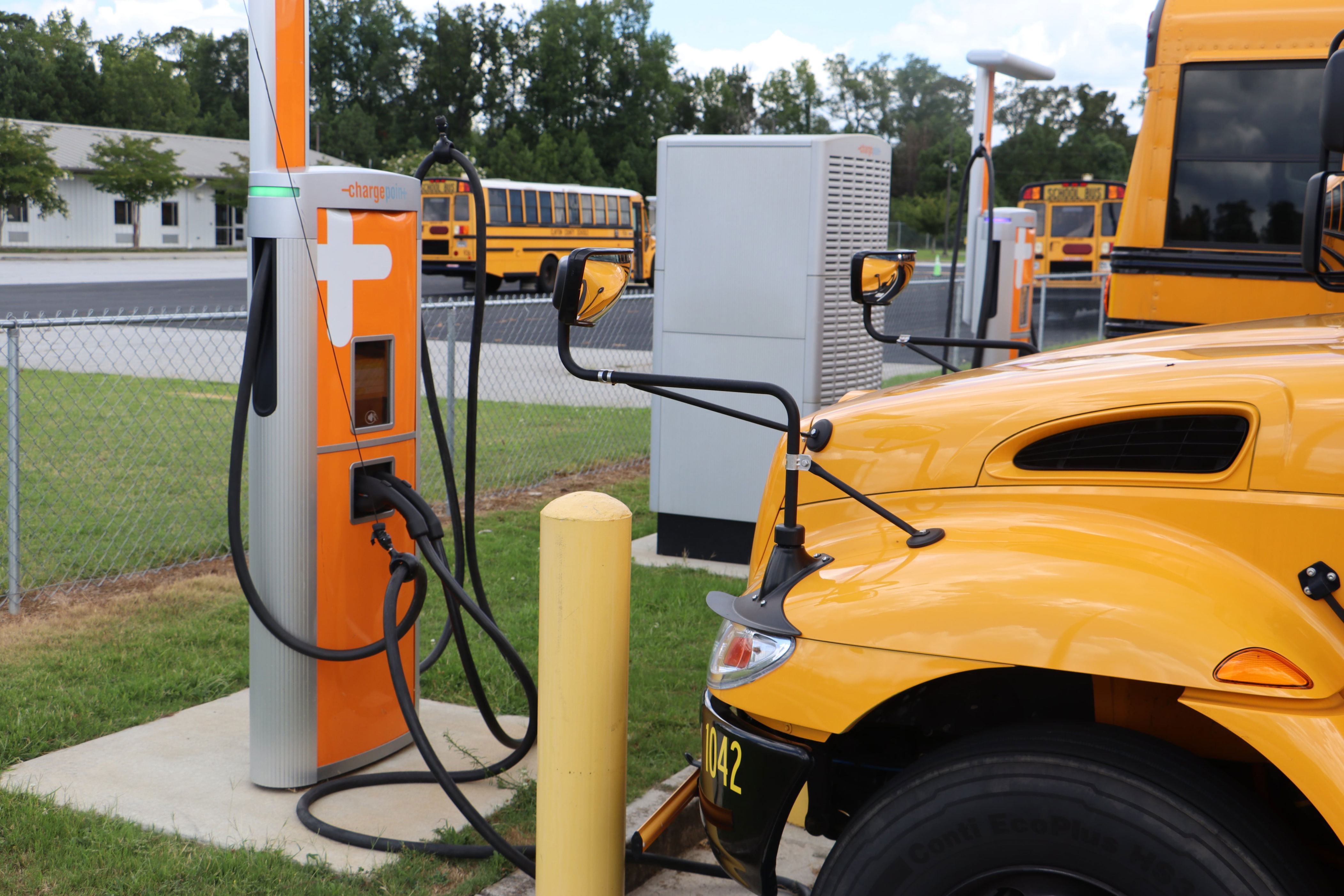Electric Buses Boost Student Health and Grades

The Shift to Electric School Buses in Atlanta
As students across Atlanta prepare to return to school, a small number of them will be traveling on electric buses. These vehicles offer a healthier and quieter ride, and research suggests that they may also lead to improved academic performance and reduced absenteeism. While the majority of Georgia’s school bus fleet still runs on diesel, the transition to electric models is gaining momentum, albeit slowly.
Most school buses in Georgia are traditional diesel-fueled vehicles, which contribute significantly to air and noise pollution. Replacing them with electric alternatives comes at a high cost—around $300,000 per bus, compared to about $100,000 for a conventional model. According to data from the World Resource Institute’s Electric School Bus Initiative, only 124 of Georgia’s 20,000 school buses are currently electric.
The shift toward electric school buses in the United States has been supported by federal funding, particularly under the Biden administration. The Bipartisan Infrastructure Law passed in 2021 allocated $5 billion over five years for the Clean School Bus program at the Environmental Protection Agency (EPA). However, the process has not been smooth. Some Atlanta-area districts have received funding, while others, like Gwinnett County, have not. Additionally, the most recent round of awards under the infrastructure bill has faced delays due to changes at the EPA since President Donald Trump took office.
Health Impacts of Diesel School Buses
Traditional diesel school buses emit pollutants that can harm children's health. Sara Adar, a professor at the University of Michigan School of Public Health, explains that children are more vulnerable to air pollution because their lungs are still developing. They breathe in more air relative to their body size than adults, and they are closer to the tailpipes that release exhaust fumes.
Adar notes that there are no safe levels of air pollution, and older buses tend to be the worst offenders. About half of Georgia’s school buses are from 2009 or earlier, when emissions standards were less strict. Replacing these older buses with cleaner models can bring educational benefits, including better performance on standardized tests and improved attendance.
There are two main theories behind this connection: cleaner air may reduce illness and asthma attacks, leading to better attendance, or air pollution could directly harm children’s brain function, affecting their ability to learn.
Benefits of Electric School Buses
Several Atlanta-area school districts are experimenting with electric school buses. DeKalb, Atlanta, and Clayton school districts are among those investing in this technology. Clayton has 25 electric buses, with another 75 expected within the next year. The district paid $2.9 million to build charging stations and infrastructure, citing cleaner air and lower maintenance costs as key benefits.
DeKalb has ordered 25 electric buses for its fleet of 1,005, with plans to add 50 more. Atlanta Public Schools has 25 electric buses purchased through the Clean School Bus fund. Anthony Ashley, senior director of fleet operations for Atlanta Public Schools, emphasizes that electric buses provide a better environment for students and drivers, with quieter rides and reduced exposure to harmful emissions.
Challenges and Alternatives
Despite the benefits, the transition to electric buses remains slow due to high costs. Some districts, like Fulton County Schools, have only one electric bus in their fleet of 930. Others, such as Gwinnett County Public Schools, have not received federal funding despite applying for it over the past four years. Much of the funding is distributed through a lottery system, according to EPA materials.
In the absence of immediate electric bus adoption, some advocates are exploring alternative solutions. Mothers and Others for Clean Air, a local advocacy group, has partnered with companies like EnviroKlenz to install air-cleaning devices on diesel buses. Early tests show that these filters can reduce air pollution inside the buses, offering a temporary solution until more electric models are available.
While electric school buses remain the ideal long-term solution, the high cost of transition means that interim measures are necessary. Advocates emphasize that even with these steps, the goal remains clear: to ensure that all children can travel to school in a clean, healthy environment.
Post a Comment for "Electric Buses Boost Student Health and Grades"
Post a Comment